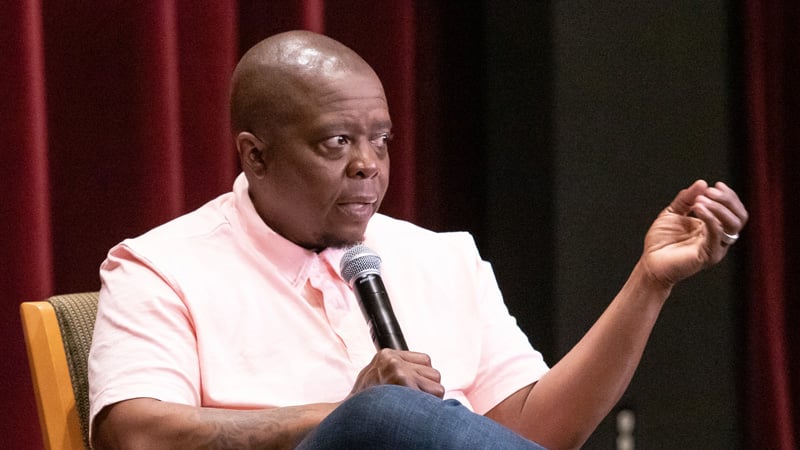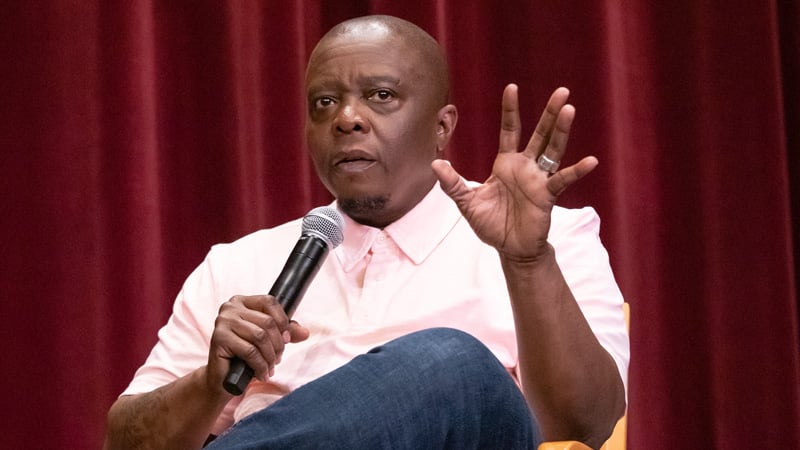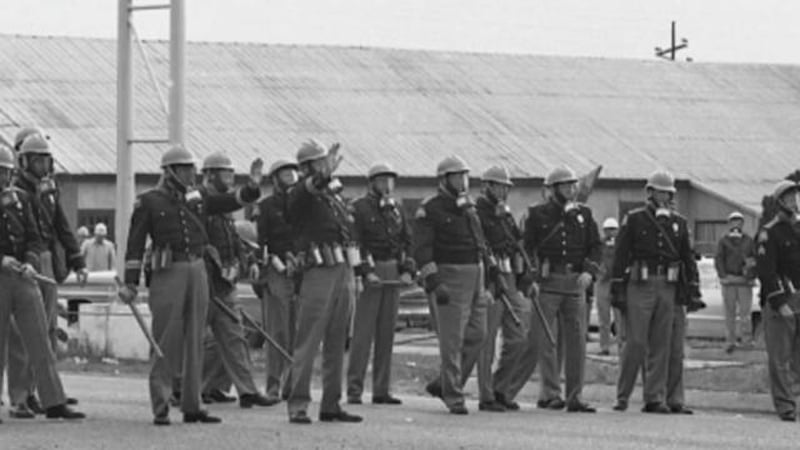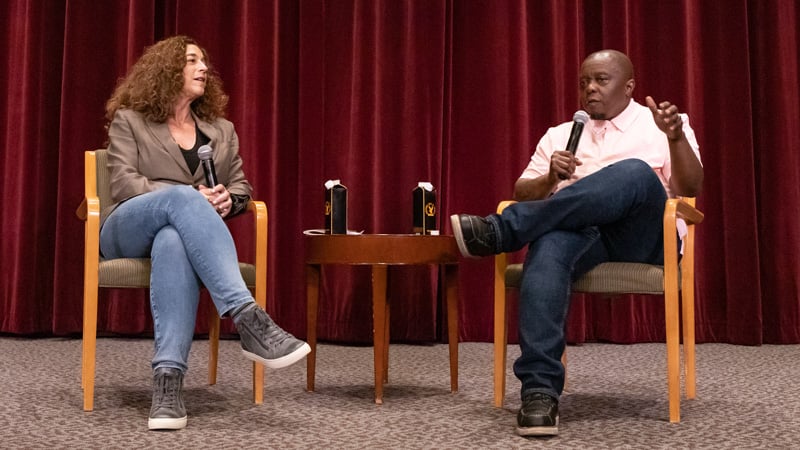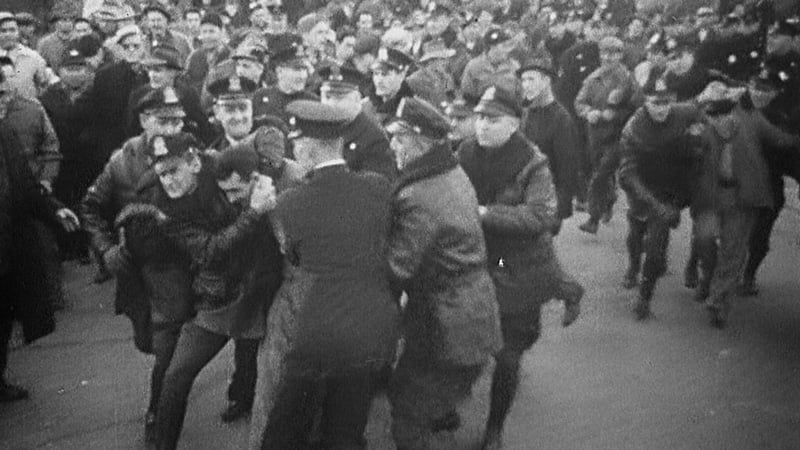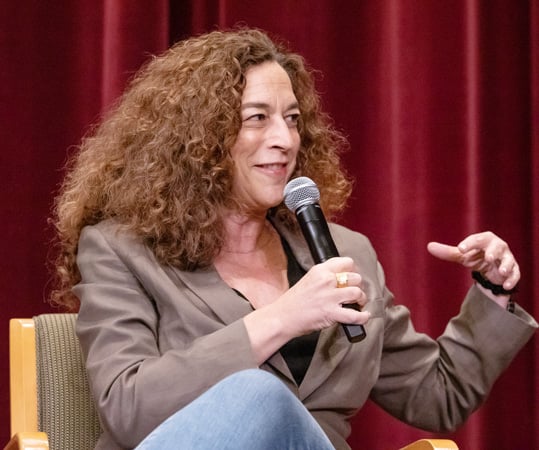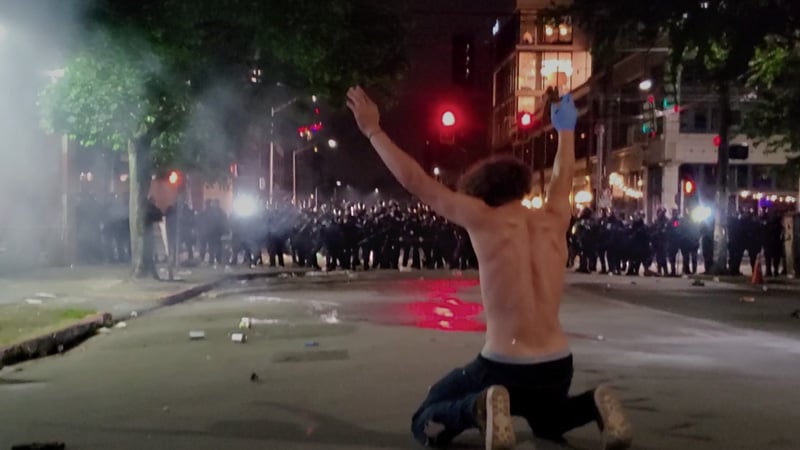Q&A photos by Marcie Revens — Print Courtesy of Netflix
Director Yance Ford’s new documentary, Power, delves into the origins of the dangerous militarization of American police forces and the implications of modern police violence in the United States. Taking us from 18th-century slave patrols to 19th-century strikebreakers, 20th-century Jim Crow to 21st-century police shootings, Power exposes the myth of good policing and asks the question, “Who is more powerful: the people — or the police?”
Following the Eastern Special Projects Committee’s Documentary Series screening at the Guild’s New York Theater on May 16, Ford sat down with Director Kristi Jacobson (No Accident) to talk about the making of the film and spoke about crafting the interviews.
“I write my own interview questions. At the end of the day, I would go through all the questions and decide what I would ask and the arc of the interview. The whole thing had to have an architecture or else you have nothing to work with because you can’t just go all over the map. In a three-hour interview, the first thing I would say to people is, ‘You need to imagine that I am your worst student. I’m the kid who’s been coming to class all semester not paying attention, I haven’t done a single assignment and suddenly I’ve shown up and I need to know what’s going on. That’s how I want you to talk to me. Please don’t assume that I know what “settler colonialism” is. Please don’t use words that I don’t actually know the meaning of. Because you can use it and I think pilgrims, but I actually can’t explain colonialism, so I need you to explain it to me.’ That was really how we got through these interviews. Everyone really had the same first twenty-five questions and then different questions based on their expertise.”
Ford’s other directorial credits include the Oscar-nominated documentary feature Strong Island and the documentary feature The Color of Care; episodes of the documentary mini-series The Me You Can’t See and Pride; the documentary series Trial by Media; and the narrative series Work in Progress.
A DGA member since 2019, Ford serves as a Co-Chair of the Documentary Award Screening Committee, is a member of the LGBTQ+ Committee and has served as an alternate on the Eastern Directors Council.
